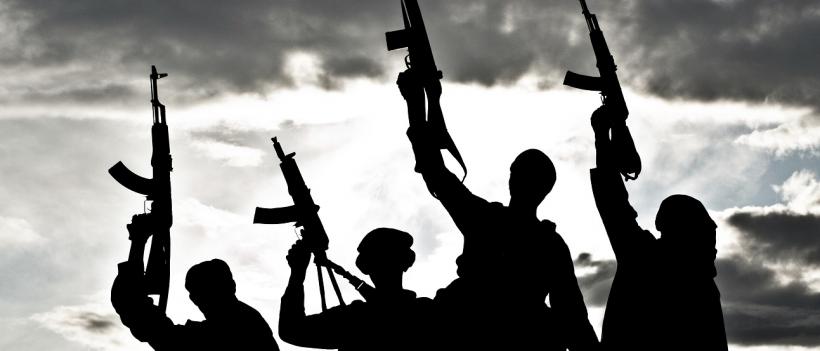
The abduction of more than 250 schoolgirls in Nigeria by a radical Islamist group is all over the news—and rightfully so. Many parts of Africa have a real problem with child abduction, though this normally involves warlords who target boys for use as child soldiers. This girl focus is much rarer, and could signal a change in tactics for local terrorist groups.
In the most recent, terrifying twist, the kidnapping organization recently released a video claiming it plans to sell the girls off. The teenaged girls have been missing for three weeks, and the government has said very little about efforts to find them.
Here are some specifics about the horrific situation.
Who are the kidnappers?
For years, the group Boko Haram has been waging a violent insurgency in northern Nigeria, where Muslims are the majority.
The name of the group literally translates to "Western education is forbidden" or "sinful." So its mission is pretty damn straightforward. It heavily targets schools in the region, and has killed hundreds of (mostly male) students during its attacks. While in the past, girls have been spared (one correspondent said they've been "told to go home, get married and give up Western education"), the group has now extended its terror tactics to them.
Where are the girls, and what conditions are they in?
Firm answers are hard to come by on this.
The government says it still doesn't know where the girls are, which has raised questions about leaders' competence and dedication to the emergency (all the international press on the issue is no doubt providing some incentive, though). According to rumors, the girls are in an insurgent-held forest near the border, or in neighboring Cameroon or Chad. There are also unconfirmed reports that some of the girls have been forced to marry militants.
As far as their physical well-being, two girls reportedly died from snakebites, 20 are said to be sick, and up to 50 may have escaped.
What's the status of the Nigerian conflict?
In a nutshell: things are not good. Though the government claims it's gaining the upper hand, the group has carried out two major bombings since the abduction, and efforts to negotiate with the group have come up empty. Boko Haram seems to be splintering into various subgroups, and those who have talked with the government have faced violent reprisal from other members.
Is there a broader solution?
Commentator Joshua Keeting conjectures that religious violence will continue to fester until the poverty, inequality and rampant corruption in northern Nigeria are addressed. He points out that while the group’s public messages are anti-Western and pro-Shariah law, it is essentially “a movement of grassroots anger among northern people at the continuing depravation and poverty in the north.”
The majority-Muslim north has largely been left out of the country’s recent economic progress, including the $80 billion+ the south of the country rakes in through oil exports. These factors help extremist groups like Boko Haram attract members and support.
There could also be trouble brewing for those outside Nigeria. There’s evidence the group is mimicking numerous other African extremist groups by moving into neighboring counties and cooperating with international terrorist organizations.
And in other Africa news, polio is spreading at an alarming rate . . .
Just kidding. I mean, it’s true, but perhaps we should only delve into so much depressing Africa news at once?
Image: ThinkStock






